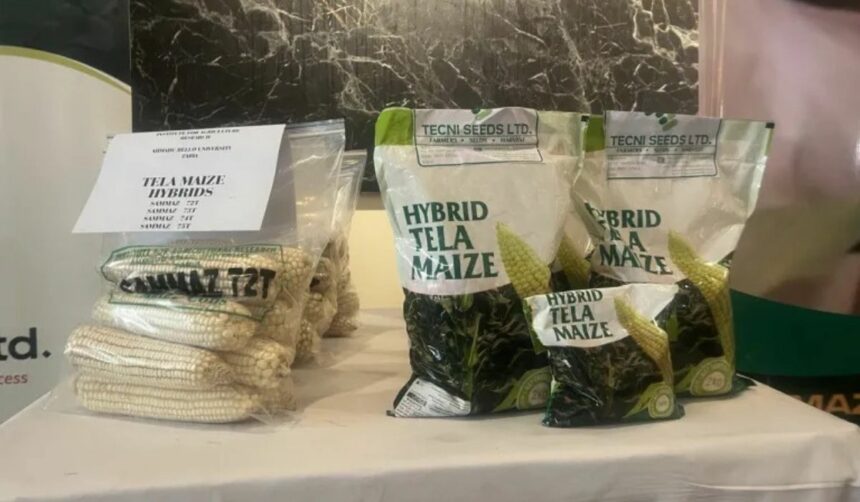A new on-farm study has confirmed that TELA Maize hybrids are delivering significantly higher yields, greater profits, and better pest resistance for Nigerian farmers compared to conventional maize varieties.
The trials, conducted during the 2024 wet season by the African Agricultural Technology Foundation and its partners, revealed that the TELA maize hybrid SAMMAZ 75T achieved average yields of 5.09 tonnes per hectare, a 54 per cent increase over the 3.30 tonnes per hectare recorded for non-TELA maize.
This yield advantage translated into higher farm income, with TELA maize earning N3.16m per hectare, compared to N2.05m from conventional maize. The on-farm demonstrations preceded the January 2024 commercialisation of four TELA Maize hybrids—SAMMAZ 72T, 73T, 74T, and 75T—developed by scientists at the Institute for Agricultural Research (IAR), Ahmadu Bello University, Zaria.
The trial involved 120 participating farmers, each cultivating 0.5 hectares of TELA maize and 0.5 hectares of non-TELA maize.
The results showed that TELA maize plots required fewer pesticide applications, averaging 1.3 sprays per season, compared to 2.1 sprays on non-TELA plots.
Only 22 per cent of TELA maize farmers reported any pest damage, while 86 per cent of non-TELA maize farmers experienced damage, with some recording losses as high as 50 to 66 per cent.
Professor Rabiu Adamu, Principal Investigator for the TELA Maize project, said, “These findings confirm even our earlier national performance trials. No TELA maize farms recorded damage beyond one-third of the crop, whereas some non-TELA plots suffered losses of up to two-thirds. This level of protection is critical for smallholder resilience.”
The financial benefit was equally striking. TELA maize plots generated over ₦1.1m more per hectare than conventional maize, driven not only by higher yields but also by savings on chemical inputs and labour. AATF’s Project Manager for TELA Maize, Dr Sylvester Oikeh, described the results as a milestone for Nigerian agriculture.
Farmer feedback echoed this sentiment, with about 90 per cent of participants expressing satisfaction with TELA maize performance. Many described it as “stress-free” and “more reliable,” citing uniform germination, faster growth, and reduced need for spraying as major benefits.
As Nigeria pushes for greater adoption of climate-smart and science-driven agricultural practices, TELA maize is gaining recognition as a transformative tool for smallholder farmers. It’s built-in pest resistance and drought tolerance align with national goals for improved food security, reduced pesticide use, and sustainable farming.
Oikeh emphasised, “TELA maize is not just another variety. It is a pathway to resilient, productive farming that empowers farmers to secure better livelihoods and ensure Nigeria’s food future.”















